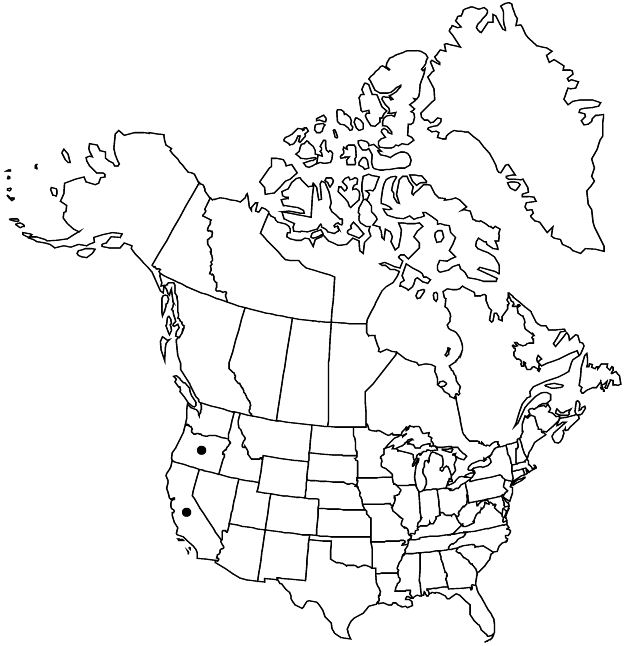familyRosaceae
subfamilyRosaceae subfam. Rosoideae
genusRosa
subgenusRosa subg. Rosa
sectionRosa sect. Rosa
speciesRosa gymnocarpa
Difference between revisions of "Rosa gymnocarpa var. serpentina"
Madroño 55: 174, fig. 2. 2008.
Common names: Gasquet rose
Conservation concernEndemic
FNA>Volume Importer |
FNA>Volume Importer |
(No difference)
| |
Revision as of 23:10, 16 December 2019
Stems (1–)3–6(–13) dm. Leaves 2–6(–8) × 1.5–3(–4) cm; stipules 5–11 mm; leaflets 5(–7), often bluish green or red-tinged, ± leathery, terminal: petiolule 2–10 mm, blade broadly elliptic to obovate or ovate to nearly orbiculate, 4–20 × 4–20 mm, apex usually broadly obtuse to rounded, sometimes nearly truncate. Pedicels 10–15 mm, eglandular or stipitate-glandular (in same inflorescence). Flowers 2 cm diam.; petals 8–10 × 6–10 mm. Hips irregularly ovoid to elongate-ellipsoid. Achenes 1–4.
Phenology: Flowering Apr–Jun.
Habitat: Full sun in roadsides, ridges, and other openings in chaparral and stunted forests on ultramafic substrates
Elevation: 400–1500(–2300) m
Discussion
Of conservation concern.
Variety serpentina is the form that usually occurs in full sun on ultramafic substrates in the Siskiyou Mountains of northwestern California and southwestern Oregon.
Selected References
None.
Lower Taxa
None.
